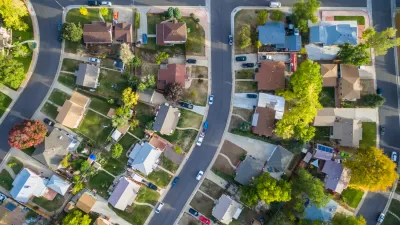Inconsistent application of fair housing laws across the country means tenants and home buyers of color and from other protected classes must educate themselves and be their own advocates.

As a term, fair housing seems like a pretty straightforward thing: under federal (and often state) law, it is illegal to discriminate against someone based on their race, color, religion, sex, national origin, disability, or familial status when renting, selling, or financing housing. Done and dusted, right? Not exactly, says Justin Bower, director of community and environmental planning for the Houston-Galveston Area Council, who recently sat down with Laura Onyeneho of the Defender for a Q&A in honor of Fair Housing Month.
Just because there are laws on the books doesn’t mean landlords, homeowners, or lenders automatically know the law and stop discriminating. Instead, Bower says, implementation of the law largely falls on tenants and home buyers from protected classes to recognize and report when they are being discriminated against, which means the law is not always consistently enforced. And discriminatory actions in housing procurement aren’t always easy to spot. “Sometimes, discrimination happens in more hidden ways, like when landlords have rules that make it hard for certain groups of people to rent apartments or when they don’t help people with disabilities live comfortably,” Bower says.
The Defender article provides an easily digestible breakdown of red flags in the sale and rental of housing, as well as mortgage lending, for tenants and home buyers to be on alert for when finding their next place. Onyeneho also explains the reason behind fair housing laws and why fair housing is so important to the ongoing fight against systemic inequality, which deeply affects marginalized communities.
FULL STORY: Fair Housing Laws: Do you know your rights?

Montreal Mall to Become 6,000 Housing Units
Place Versailles will be transformed into a mixed-use complex over the next 25 years.

Planetizen Federal Action Tracker
A weekly monitor of how Trump’s orders and actions are impacting planners and planning in America.

DARTSpace Platform Streamlines Dallas TOD Application Process
The Dallas transit agency hopes a shorter permitting timeline will boost transit-oriented development around rail stations.

Interactive Map Reveals America's “Shade Deserts”
Launched by UCLA and American Forests to combat heat-related deaths, the tool maps the shade infrastructure for over 360 U.S. cities.

Bicycles and Books — In Sacramento, Libraries Now Offer Both
Adult library card holders can check out e-bikes and e-trikes for up to one week.

Colorado Landfills Emit as Much Pollution as 1M Cars
Landfills are the third-largest source of methane pollution in Colorado, after agriculture and fossil fuel extraction.
Urban Design for Planners 1: Software Tools
This six-course series explores essential urban design concepts using open source software and equips planners with the tools they need to participate fully in the urban design process.
Planning for Universal Design
Learn the tools for implementing Universal Design in planning regulations.
City of Mt Shasta
City of Camden Redevelopment Agency
City of Astoria
Transportation Research & Education Center (TREC) at Portland State University
US High Speed Rail Association
City of Camden Redevelopment Agency
Municipality of Princeton (NJ)





























